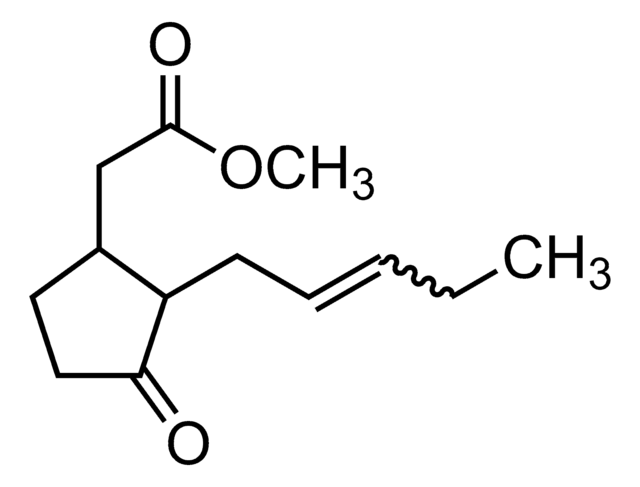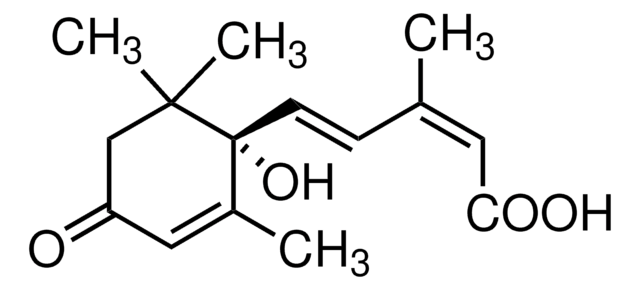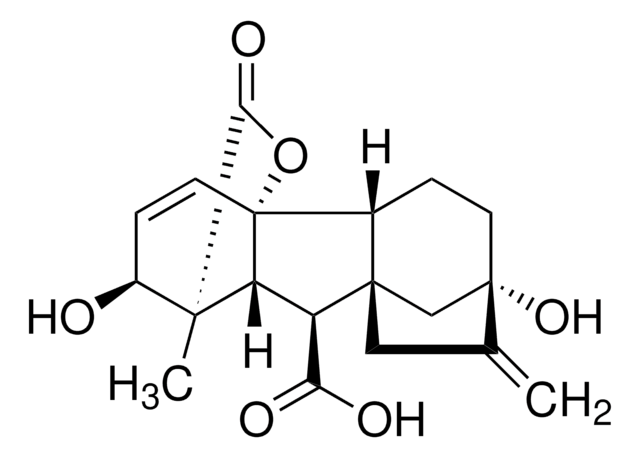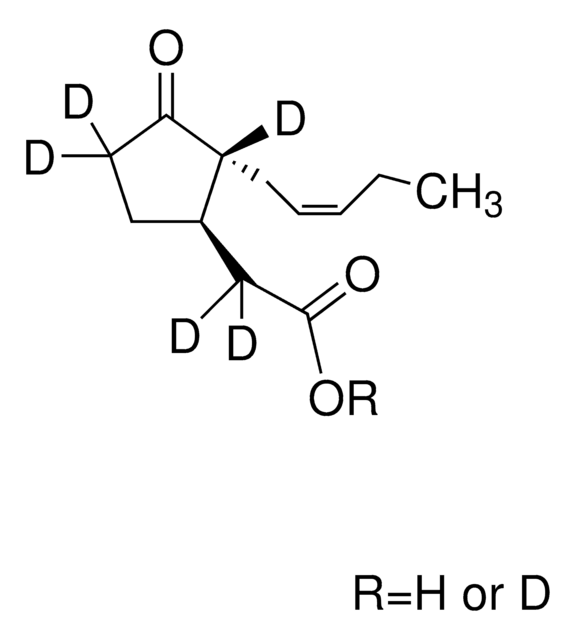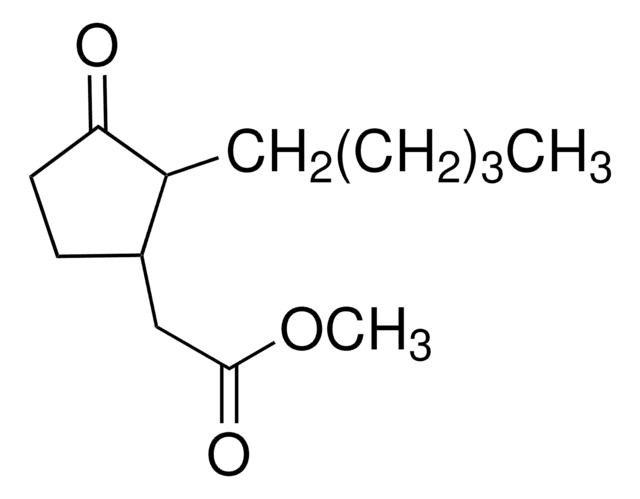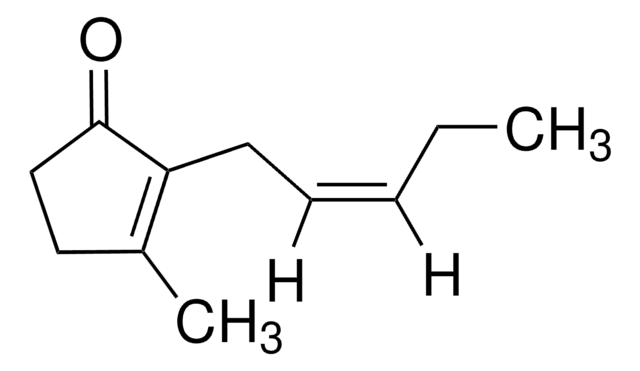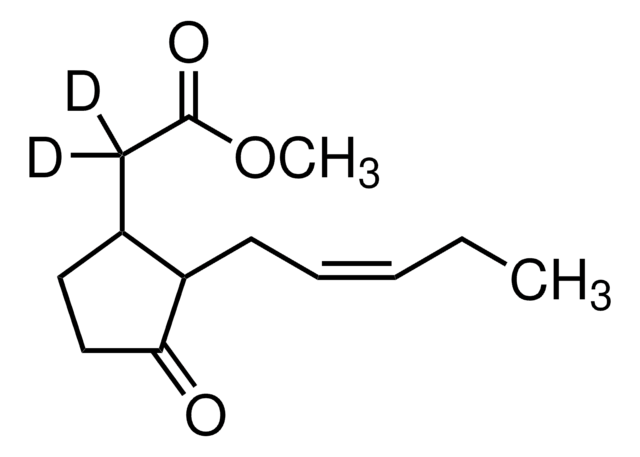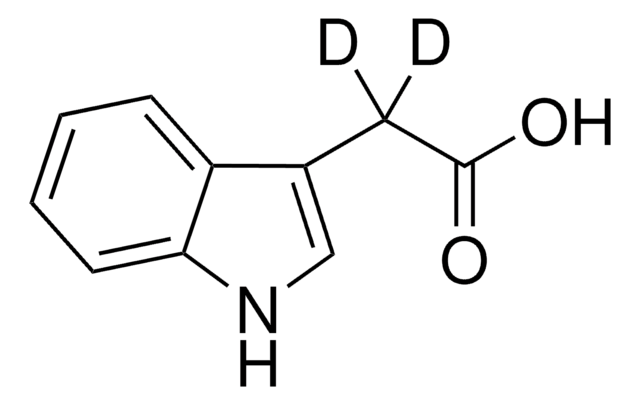Key Documents
J2500
(±)-Jasmonic acid
suitable for plant cell culture, BioReagent, liquid
Synonim(y):
(±)-1α,2β-3-Oxo-2-(cis-2-pentenyl)cyclopentaneacetic acid
About This Item
Polecane produkty
linia produktu
BioReagent
Poziom jakości
Postać
liquid
metody
cell culture | plant: suitable
Zastosowanie
agriculture
temp. przechowywania
2-8°C
ciąg SMILES
CC\C=C/C[C@H]1[C@@H](CCC1=O)CC(O)=O
InChI
1S/C12H18O3/c1-2-3-4-5-10-9(8-12(14)15)6-7-11(10)13/h3-4,9-10H,2,5-8H2,1H3,(H,14,15)/b4-3-/t9-,10-/m0/s1
Klucz InChI
ZNJFBWYDHIGLCU-CMIOBCHKSA-N
Szukasz podobnych produktów? Odwiedź Przewodnik dotyczący porównywania produktów
Zastosowanie
Uwaga dotycząca przygotowania
Inne uwagi
produkt powiązany
Kod klasy składowania
11 - Combustible Solids
Klasa zagrożenia wodnego (WGK)
WGK 3
Temperatura zapłonu (°F)
Not applicable
Temperatura zapłonu (°C)
Not applicable
Środki ochrony indywidualnej
Eyeshields, Gloves, type N95 (US)
Certyfikaty analizy (CoA)
Poszukaj Certyfikaty analizy (CoA), wpisując numer partii/serii produktów. Numery serii i partii można znaleźć na etykiecie produktu po słowach „seria” lub „partia”.
Masz już ten produkt?
Dokumenty związane z niedawno zakupionymi produktami zostały zamieszczone w Bibliotece dokumentów.
Klienci oglądali również te produkty
Protokoły
Przewodnik referencyjny i przewodnik przygotowania do stosowania antybiotyków i środków przeciwgrzybiczych w hodowli tkanek roślinnych.
Nasz zespół naukowców ma doświadczenie we wszystkich obszarach badań, w tym w naukach przyrodniczych, materiałoznawstwie, syntezie chemicznej, chromatografii, analityce i wielu innych dziedzinach.
Skontaktuj się z zespołem ds. pomocy technicznej